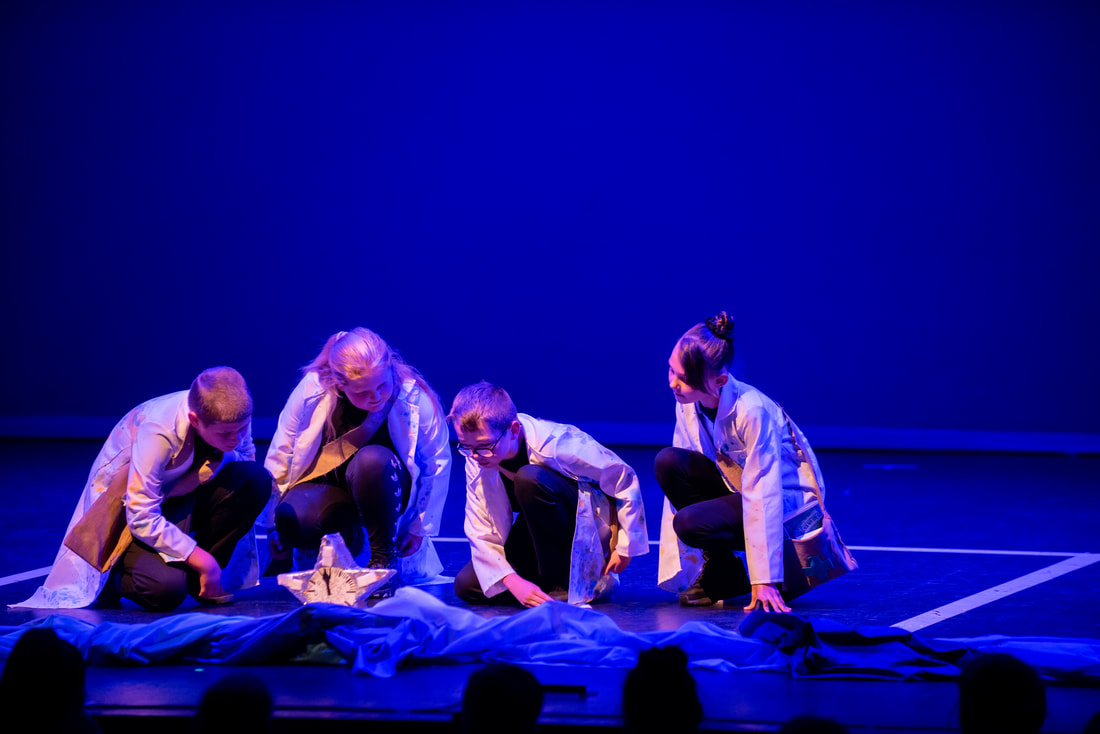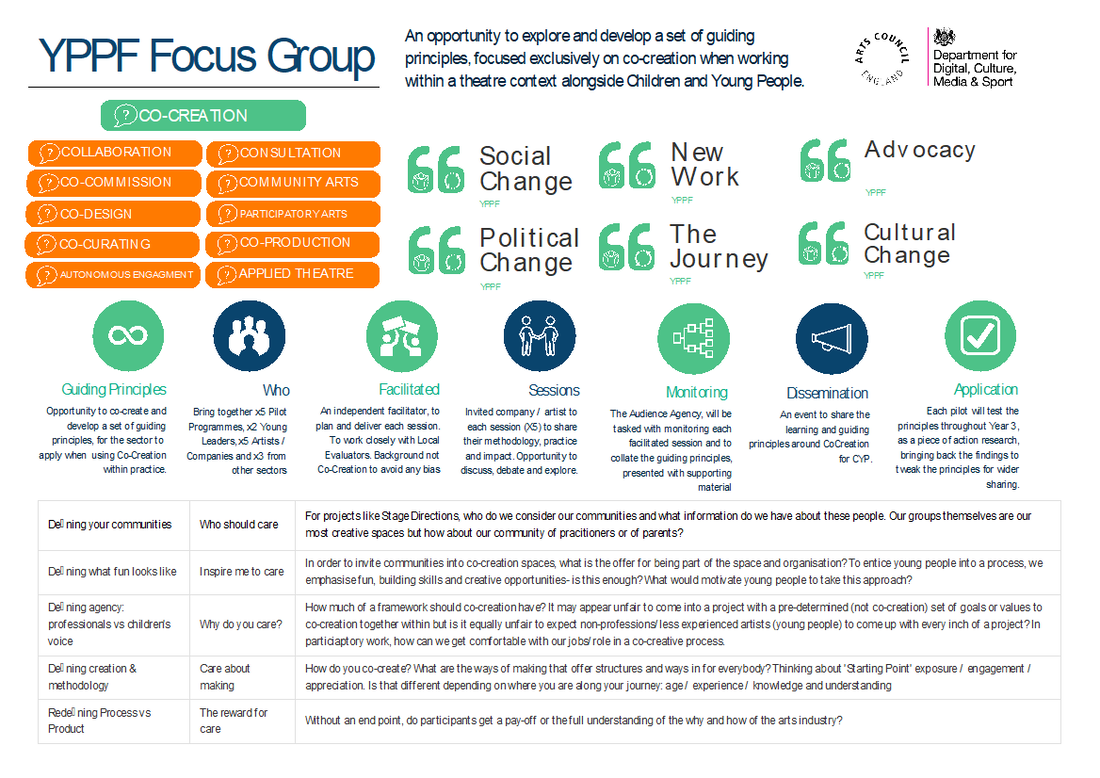Co-Creation Principles
Thank you for taking some time out of your busy schedule to read this, we (Stage Directions & Salford CEP) hope there are some practical and valuable insights and considerations to aid your delivery when making co-created theatre with children and young people. Over the past number of years the phrase 'co-creation' has become embedded in the language we use across the Creative and Cultural sector with varying, broad and sometimes vague definitions and applications. This led us (Stage Directions) to begin a national conversation that focuses on this very thing – ‘are there any guiding principles which universally underpin co-creation?’ Here are our findings based on delivery and co-created theatre facilitated over a 3-year period (2019 - 2022) via the Youth Performance Partnerships Fund.
These pages offer a number of principles in practice, questions and provides guidance on co-creating with young people through theatre making. It makes specific reference to education professionals and schools to acknowledge the context of people who came together to develop the rationale. By applying the shared understanding of co-creation, by all contributors, the content has been populated via a co-creative process, ensuring everyone has a voice and an equal position throughout the development of this work.




